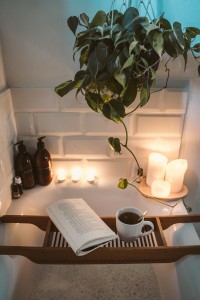Sleep by Newcastle Psychologist
Being a Newcastle Psychologist we offer a wide range of services at our clinic and support people with their sleep. Disrupted sleep can be due to many reasons, Depression, new baby, stress and menopause (to name a few). As I write this the time has been changed in the UK which can also cause disruption to sleep for some.
These sleep hygiene tips does not rule out getting supporting from healthcare professionals in particular a GP. At times it is beneficial to have a full blood count (FBC) and review medication & health to ensure this is not impacting on your sleep.
1. Establising a consistent sleep schedule. Going to bed and waking up at the same time every day, even on weekends, can regulate your body’s internal clock and improve the quality of your sleep. Additionally, creating a relaxing bedtime routine can signal to your body that it’s time to wind down. This can include activities such as reading a book, taking a warm bath, or practicing relaxation exercises like deep breathing or meditation.
2. Sleep friendly room. Ensure that your bedroom is at a suitable temperature for you, dark, and quiet. Consider using earplugs, an eye mask, or a white noise machine if necessary. It’s also important to invest in a comfortable mattress and pillows that support your body properly. Keeping your bedroom free from electronic devices and creating a clutter-free space can also contribute to a more peaceful sleep environment.
3. Engaging in regular physical activity during the day can also improve sleep quality. Exercise has been shown to reduce stress and anxiety, which are common factors that can disrupt sleep. However, it’s important to avoid exercising too close to bedtime as it for some people it can stimulate your body and make it difficult to fall asleep. Aim to finish your workout at least a few hours before bedtime to allow your body to wind down.
4. Avoid consuming large meals, caffeine, and alcohol close to bedtime as they can interfere with your sleep. Instead, opt for a light snack that contains sleep-promoting nutrients such as tryptophan, magnesium, and calcium. Foods like bananas, almonds, and herbal teas like chamomile or lavender are reported by some people to help relax your body and prepare it for sleep.
5. Lastly, managing stress and practicing relaxation techniques can greatly improve sleep. High levels of stress can lead to insomnia and restless nights. Find healthy ways to cope with stress, such as engaging in hobbies, spending time with loved ones, or practicing mindfulness. Techniques like progressive muscle relaxation, guided imagery, or aromatherapy can also help calm your mind and prepare it for a restful night’s sleep.
Newcastle Psychologist




